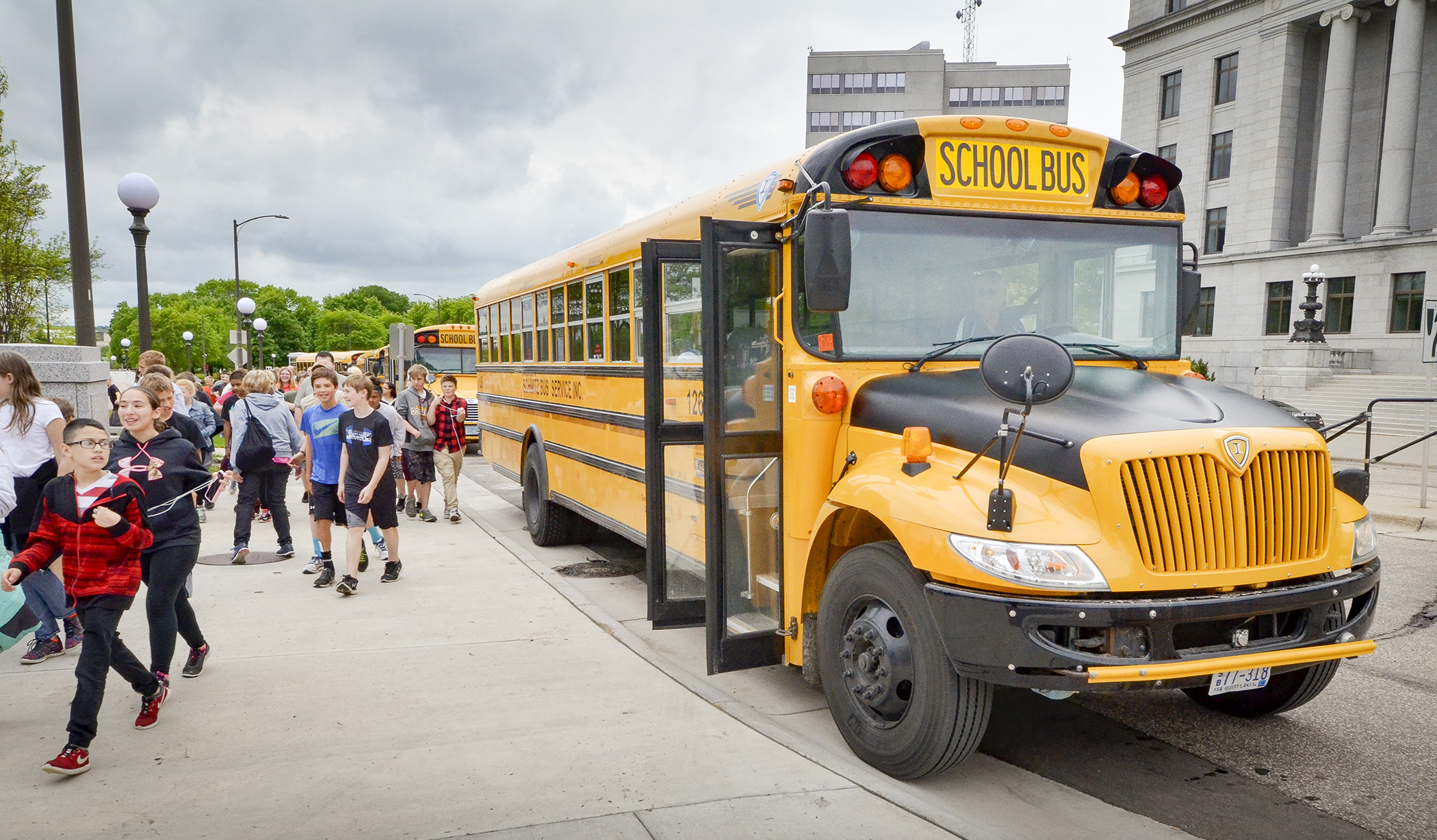Education panel considers greater protections for hourly school workers

School support staff perform a variety of duties including delivering food and learning materials to students, providing child care for essential workers, and helping implement distance learning plans and technology.
They’re also primarily hourly workers who are susceptible to lost wages and layoffs during the COVID-19 pandemic.
Sponsored by Rep. Jim Davnie (DFL-Mpls), HF4415 would require school districts and charter schools to pay hourly employees for changes in school employment practices as a result of COVID-19-related school closures and the conversion to distance learning programs.
The bill was heard remotely by the House Education Finance Division Tuesday. No action was taken. The companion, SF4369, awaits action by the Senate E-12 Finance and Policy Committee and is sponsored by Sen. Jim Abeler (R-Anoka).
The bill would also require districts to reimburse companies they contract with, such as private bus companies, if the company chooses to pay employees for hours they were scheduled to work but did not during the distance learning period. The bill specifies that the distance learning period is March 18, 2020 through May 4, 2020, unless extended by emergency executive order.
“Our goal with this legislation is to support schools, staff, students and families by directing a stable and predictable path amid what will be and will feel like a challenging situation currently,” Davnie said. “We’re looking forward, anticipating challenges and planning for them.”
Gov. Tim Walz signed an executive order several weeks ago instructing the temporary closure of Minnesota K-12 public schools in order for administrators and teachers to make long-term plans for the continuity of education and essential services. Since then, he has indicated it is likely schools will continue to operate through distance learning the remainder of the school year.
Although Walz issued another executive order that provides paid leave for state employees who are not able to work for reasons related to COVID-19, this bill would enhance and offer additional assurances that hourly school district staff are compensated for lost hours of work.
“We propose holding school districts financially whole as possible as they implement distance learning so that they can, in turn, keep their education support professionals, bus drivers, food program and other hourly staff whole during any school closures related to the current public health crisis,” Davnie said.
Additionally, the bill would address school finance formula anomalies resulting from the conversion to the distance learning model, and it would create and legislatively approve certain waivers to state law regarding assessments, graduation and course requirements, and potential licensure issues faced by prospective and current teachers.
Hollie Neitzke, a food service professional with Sartell Public Schools, spoke in support of the proposal, explaining that she and her colleagues had reduced hours but continue to prepare meals for low-income students.
“The fear of contracting and spreading this virus has already caused so much stress on all of us. If we lose our income also, what will that do to us, how will we survive,” she said. “That’s why you must pass this bill to guarantee that school workers get paid our regular wages for the duration of this pandemic. It’s the only way that tens of thousands of families like mine across the state are going to make it through.”
Gary Amoroso, executive director of the Minnesota Association of School Administrators, explained that districts are doing what they can to retain and pay support staff, but a loss of fee revenue is making it difficult.
Speaking on behalf of several other education-related organizations, he offered a number of recommendations on how the bill could be improved, including providing additional funding.
“We remain hopeful that the state will be able to provide some additional resources to help districts cover the amount of lost fee revenues school districts have realized in their community and food service funds,” he said.
Citing recent information from Minnesota Management and Budget indicating the state could soon be facing a budget deficit, Rep. Ron Kresha (R-Little Falls) indicated there may not be additional funds available for schools. He asked that, in a worst-case scenario, how the bill would impact districts and their budget planning.
“If there are no additional resources, if we get a freeze by example, or we get a shift in resources, or even a rescission of dollars, that would create nightmare scenarios for many, many districts,” Amoroso said.
Related Articles
Search Session Daily
Advanced Search OptionsPriority Dailies
Ways and Means Committee OKs proposed $512 million supplemental budget on party-line vote
By Mike Cook Meeting more needs or fiscal irresponsibility is one way to sum up the differences among the two parties on a supplemental spending package a year after a $72 billion state budg...
Meeting more needs or fiscal irresponsibility is one way to sum up the differences among the two parties on a supplemental spending package a year after a $72 billion state budg...
Minnesota’s projected budget surplus balloons to $3.7 billion, but fiscal pressure still looms
By Rob Hubbard Just as Minnesota has experienced a warmer winter than usual, so has the state’s budget outlook warmed over the past few months.
On Thursday, Minnesota Management and Budget...
Just as Minnesota has experienced a warmer winter than usual, so has the state’s budget outlook warmed over the past few months.
On Thursday, Minnesota Management and Budget...